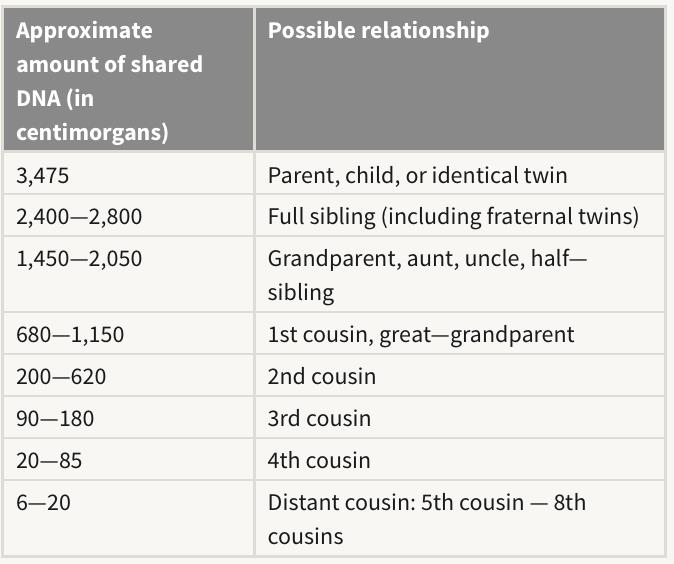…or how I learned to stop worrying and love Big Data.

For the last couple of years I have been dabbling with genealogy. My family in England has always been convinced we were related to Jack Cornwell, a 16-year-old Naval recruit who died a heroic death at the Battle of Jutland in the First World War. My mother was German so I was curious about that side of me too. Most of my relatives are dead, so I had just a few recollections of family anecdotes and a handful of old photographs to start with.
Internet to the rescue! Mormons in Salt Lake City, whose mission in life is to find salvation for their forefathers by genealogical research and ordinances performed by proxy for them, run several online sites to help you “discover your family’s story.” The story goes that before and after the Second World War dozens of Mormon researchers photographed and transcribed huge numbers of church and public records in Europe long before anyone had thoughts about data security. There are now millions of records on their databases.
I was hooked. I found hundreds of records and then progressed to a DNA test, which gives you an ethnic summary. 6 weeks after my carefully gathered saliva had been transported by tube across the Atlantic, I had my unique ethnic mix. No big surprises: English, German, a bit of Scottish/Irish and 10% Norwegian (!) Were there marauding Vikings in my past? 75% English was confusing for someone with a German mother who gave me 50% of her DNA, so either the analysts got their statistics wrong or “English” means Anglo-Saxon. Ancestry tell you nothing is 100% certain and their analysis is based on 5 generations of people living in the same place…

However, they also give you a list of “matches”. No, not dating recommendations, all the people on their 10 million-strong database that have similar DNA. There were 101 4th-6th cousins, (that’s people with the same Great-Great-Great-Grandparent or alternatively Great-Great-Great-Great-Great-Grandparent). No, not Adam and Eve. I checked a few of their family trees to find where (if at all) I could identify a common relative.
But there was another match staring me in the face. Let’s call him John. Possible range: Close family – 1st cousins Confidence: Extremely High. Shared DNA: 2.026 Centimorgans across 67 segments. Aha, the Germans! I mailed this person with a very exotic sounding name to announce our match and asked if we could be related on my German side. He answered “My mother was Belgian. My father was Dutch, but there may be more to that story. I now live in Canada.” After a few more mails we checked the numbers. (Centimorgans measure the length of the DNA segments you have in common. The more you have, the closer the match).
It slowly dawned on us what the possibilities were. John was born in January 1946. I remembered some old photos – my Dad in Belgium in May 1945 – but John could not recognize anyone on them. Time for historical research. The Allies had liberated Belgium by February 1945 but had to consolidate until they could push into the Netherlands. My father was with the RAF ground forces, doing logistics. He was rescued by the Americans in the Ardennes during Rundstedt’s Push – the German counter-attack. John recalled his half-sister had told him there was doubt whether her father was in fact his father, and that his mother had had an affair with an American soldier…

We reviewed what the numbers could mean. He could not be my grandfather, aunt or uncle, or I his. We FaceTimed and saw each other face to face, and came to the conclusion that we are probably half-brothers! He’s pleased to have found a family, I like the idea of friendly relatives in Canada, and my wife and I just hooted with laughter at the thought that MY father, who was so prudish and straight-laced, could have fathered a child during the war (and apparently not known he had!).
Times have changed. My father’s generation were brought up strictly to be discreet, avoid showing their emotions and to behave in accordance with social norms. Illegitimacy was taboo, sex was not mentioned. The war put people into extreme situations their guidelines did not cover. Since the rebellious 60’s and 70’s attitudes towards individual behaviour have gone through a radical transformation, and social media has re-defined privacy. Big Data is putting an end to a lot of secrets.
Ancestry warns in its Terms of Service “You may discover unanticipated facts about yourself or your family when using our Services that you may not have the ability to change.”
You can say that again.
Bildquellen
- puzzle – Arek Socha – Pixabay: Arek Socha by Pixabay
- DNA – Gordon Johnson – Pixabay: Gordon Johnson by Pixabay
- Tabelle Amount of shared DNA: ancestry.com

